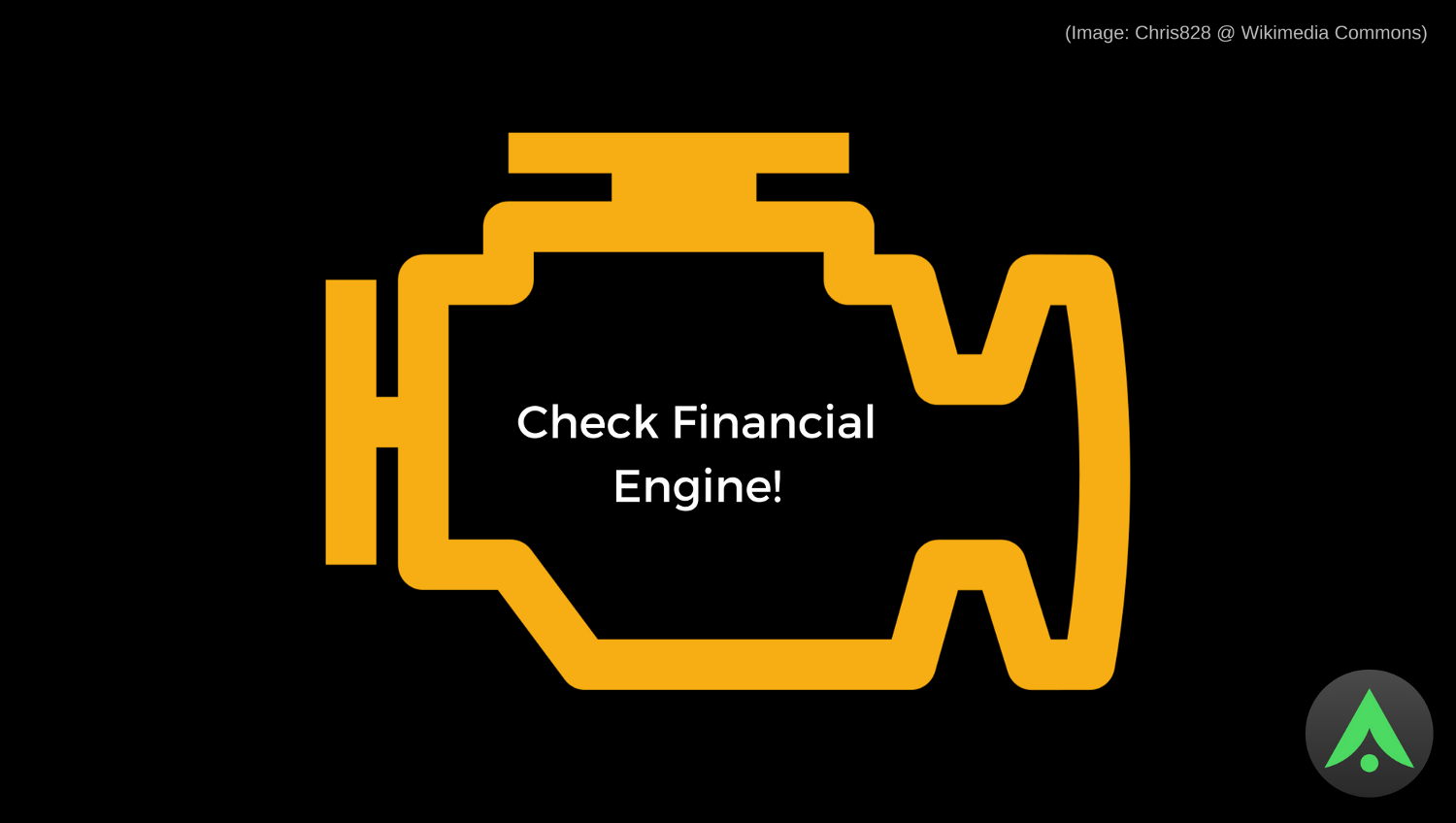We are at the mid-way point in 2018 — time for that financial tune-up. Most of us set financial goals with great enthusiasm at New Year’s but find that the enthusiasm slowly wears off by Spring and Summer. Let’s not allow that to happen, shall we? Here are a few concrete things to do:
Adequate Insurance?
While we all seek to gain and prosper, a crucial thing that we must do is to protect what we do have. Insurance — that perennial drain on household finances — is a necessary evil. Check that you have the appropriate coverage for:
- Home
- Renters insurance
- Auto
- Health insurance
- Other insurance (small business, umbrella, etc.)
And please read the fine-print in the insurance coverage documents. The last thing you want is to pay the premiums regularly only to find coverage denied when you need it because you did not check the fine-print when you signed up.
Emergency fund tune-up
Is your emergency fund appropriately funded? If not, get this started now. Estimate how many months of zero-income you can sustain? Don’t just use simple 3-month or 6-month that you read in blogs/advice columns. Instead, look around you — in your geographic area, in your chosen field, how quickly are people with your skills and in your age group getting hired? The older you are, in some professions, it takes a while (sadly) to land a new job.
Spending Tune-up
If you have set up budgets, how have you done these last six months? Met targets each month? Missed a few? If you missed a few months, then look through your spending in those months and see what set you off course.
If you have not set up budgets, this may be a good time to do so. If you need some help, look at our zero-baseline approach. For your household spending, it may be useful to compare spending by category year-over-year. Where is spending rising? What is the cause for the rising year-over-year expenses? Perhaps, you have moved, or changed the service provider who charges more. Whatever be the explanation, make sure that you understand the reasons for the increase in expenses.
Investments Tune-up
Are you contributing appropriately for your retirement? Are you, at least, not letting any free money go so that you are getting your maximum employer 401K match? If you don’t know how much you need to have saved up for retirement, you may want to get a head-start on this. Lots of tools out there; you can use our retirement calculator that checks to see if the amounts you will have saved up will be adequate for your retirement (given market conditions, other income sources, etc.).
Check up on your asset allocation mix to make sure that it still matches what you are comfortable with! If the mix is out of whack because one or more asset classes shot up (or, down), think about whether/how you want to re-balance it.
If you don’t know what asset allocations are, sadly, I wish I could tell you that you can just ignore this. As we move into self-directed “401k” style retirement plans, we each must become more well-versed in asset classes and allocations. Lots of helpful links available. Basically, asset allocations divvies up your portfolio into different asset classes — US stocks, US T-bonds, International Stocks, Emerging Markets Stocks, Real estate ETFs, Gold, Cash/Cash Equivalents/CDs/T-bills, etc. The idea behind a good asset allocation mix is that you choose a mix that is balanced for risk so that as one class of investments goes down, others go up.
Skills Tune-up
Are you where you need (or, want) to be in your job — in terms of money, position, etc.? If yes, great. If not, what concrete steps will you take to get where you need to be? These concrete steps may involve going back to school, etc. — for which you may need to budget appropriately.
Do you have a mentor? Do you have a mentor? Do you have a mentor? Not a typo — this is super important. There is no virtue in flying solo through professional issues/questions. Have someone you respect as your mentor. Learn more about the value of a mentor and how to get one.
Tax Tune-up
Are your tax withholdings (W-4) correct? Don’t pay too much in withholdings — so that you get a nice fat refund next year. Instead, best to set it up to pay a little bit on your taxes. In other words, don’t let the government hold your money interest free.
The Tax Reform Act that passed at the end of 2017 makes significant changes that will hit a lot of people when we file our taxes by April 15, 2019. This may be a good time for you to see if you may be affected and plan accordingly.
Finally, a motto
A lot of us leave planning alone (whether financial or otherwise). We are afraid that if we change something we may do more harm than good. Hence, we are paralyzed by analysis or paralyzed by fear of consequences. Don’t be: If you do some modicum of research before you act, have a fair mechanism to evaluate the choices you are making, small mistakes will not cost you.
Even in reasoning upon some subjects, it is a mistake to aim at an
unattainable precision. It is better to be vaguely right than exactly wrong.
— Carveth Read (Logic: Deductive and Inductive) [1898]
Happy Planning!


